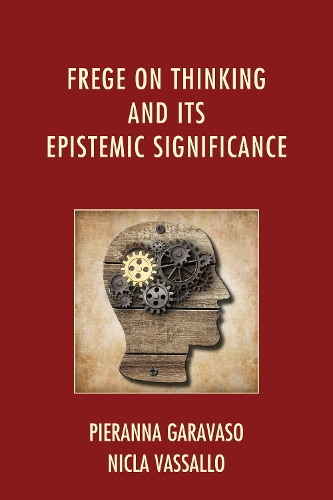
Frege on Thinking and Its Epistemic Significance
(Hardback)
Publishing Details
Frege on Thinking and Its Epistemic Significance
By (Author) Pieranna Garavaso
By (author) Nicla Vassallo
Bloomsbury Publishing PLC
Lexington Books
12th November 2014
United States
Classifications
Tertiary Education
Non Fiction
Philosophy: epistemology and theory of knowledge
Philosophy: logic
193
Physical Properties
Hardback
138
Width 162mm, Height 234mm, Spine 16mm
358g
Description
Pieranna Garavaso and Nicla Vassallo investigate Gottlob Frege's notion of thinking (das Denken) to provide a new analysis of a largely unexplored area of the philosopher's work. Confronting Frege's deeply seated and widely emphasized anti-psychologism, Frege on Thinking and Its Epistemic Significance claims that the objective human science that Frege proposed can only be possible through a nuanced notion of thinking as neither merely psychological nor merely logical. Focusing on what Frege says about thinking in many passages from his works, Garavaso and Vassallo argue that Frege was engaged with issues that are still alive in contemporary debates, such as the definition of knowledge and the necessary role of language in conceptual thinking and in the expression of thoughts. Frege on Thinking and Its Epistemic Significance is essential not only for those interested in a new and original reading of Freges philosophy, but also for anyone engaged in epistemology, logic, psychology, philosophy of language, and the history of analytic philosophy.
Reviews
Given the large literature on Frege, one might believe that it would be impossible to say anything essentially new on the subject. This book contradicts this belief.... This book is a welcome addition to the literature on Frege. It fills the gap that most secondary literature on Frege has left open by not paying close enough attention to what Frege says about thinking. In this way it shows that, despite the large literature on Frege, it is still possible to say something essentially new on the subject. * History and Philosophy of Logic *
In this short book, Pieranna Garavaso and Nicla Vassallo aim to re-focus discussions of Frege toward two neglected aspects of his work.... [T]he heart of Garavaso and Vassallo's book (Chapters 3-4) identifies an important nest of topics which deserve further historical and conceptual exploration, topics which are of deep interest to those working in the history of analytic philosophy and the history of post-Kantian philosophy of mental acts more broadly. * Notre Dame Philosophical Reviews *
The book is essential not only for those interested in a new and original reading of Frege's philosophy, but also for anyone engaged in epistemology, logic, psychology, philosophy of language, and the history of analytic philosophy. * Zentralblatt MATH *
Pieranna Garavaso and Nicla Vassallo make the new and surprisingclaim that Frege, despite his anti-psychologism, developed a detailed theory ofdas Denken(thinking). The authors support this claim by careful citation and analysis of texts. They also criticize Dummett, arguing,quite convincingly,that he overemphasized Freges stress on the analysis of language andwrongly maintainedthat Frege ignored epistemology. -- Donald Gillies, University College London
In the literature on Frege, his remarks on thinking are often neglected or misunderstood. This book discusses them in detail and thereby helps complete our understanding of this philosopher. -- Mark Textor, King's College London
Author Bio
Pieranna Garavaso is professor of philosophy at the University of Minnesota, Morris. Nicla Vassallo is professor of philosophy at the University of Genova.
